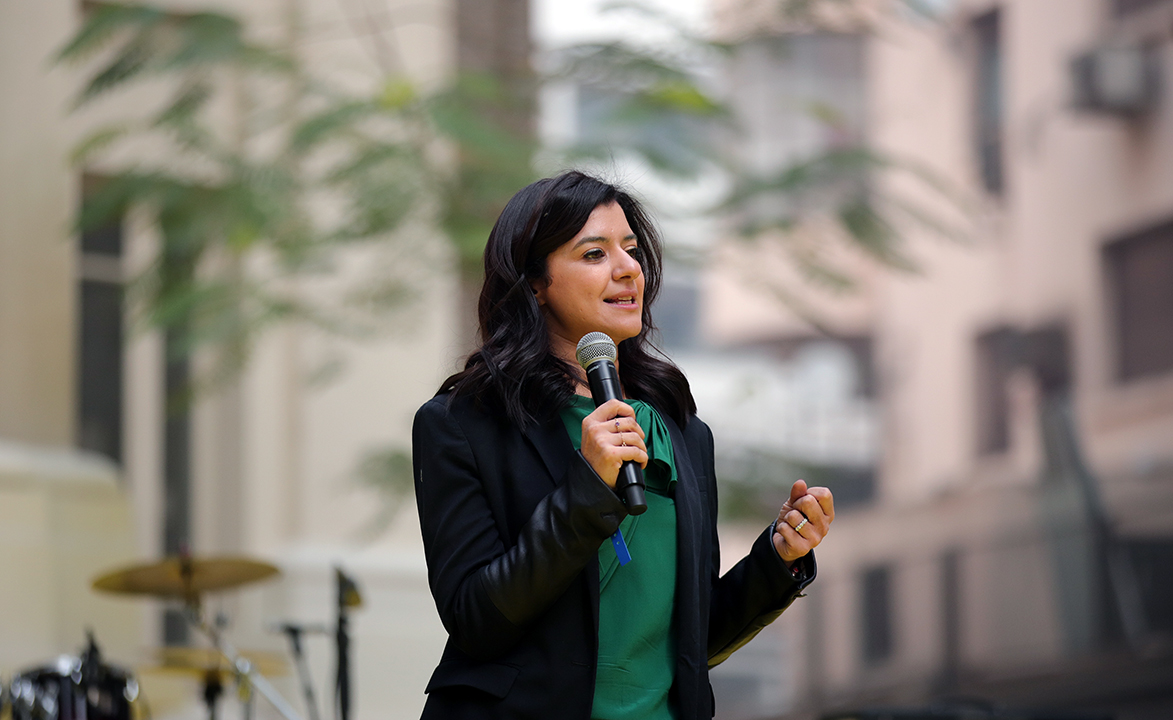Through The Eyes Of The Egyptian-American Enterprise Fund, Amal Enan Sees Potential
We speak to the executive director of the United States' investment arm in Egypt, Amal Enan, on how the EAEF contributes to the country's startup landscape.

The reshuffle of power dynamics spurred by North Africans in early 2011 got the North Americans interested in what the future held, and wanted to be part of it. Toppling Tunisian former president Zine El Abidine Ben Ali in January 14th echoed two kilometers to the east, spiraling a revolution that eventually cornered Egyptian former president Hosni Mubarak to step down instigating an Arab Spring that went downhill. During the best of times, yet worst of times, the US Congress authorised the creation of enterprise funds for Egypt and Tunisia to get a share of the entrepreneurial cake. The Tunisian- and Egyptian-American Enterprise Funds (TAEF and EAEF) aim to develop the private sectors in these countries, particularly SMEs, through instruments such as loans, equity investments, and technical assistance. USAID signed grant agreements with both funds in 2013 and has been ever since pumping the EAF and TAEF with a ratio of two to one respectively.
The EAEF is a 300-million-dollar fund, only focused on Egypt. Executive Director of the EAEF Amal Enan explains to us how the EAF works and how far has it contributed to the Egyptian startup ecosystem. “So far, we have invested 145 million dollars in Egypt since 2014,” Enan tells Startup Scene. From 2002 to 2014, Enan has been studying Economics between Cairo University, London School of Economics, and Harvard Business School. While working at the EAEF, she’s been a board member in Dawi Clinics as well as startups and VCs that EAEF has invested in such as Smart Care and Sarwa Capital. She was first employed at the EAEF as Chief of Staff and Director of Policy Planning in 2014 and got promoted to Executive Director in January 2017.
According to a monitoring report on both EAEF and TAEF by the United States Government Accountability Office (GAO), EAEF’s attempt to purchase a bank in Egypt that would lend money to SMEs was rejected by the Egyptian Central Bank. After that, EAEF had to readjust its strategy to implement its vision. So, they decided to learn from their Tunisian counterpart, which was already investing in four different areas: a private equity fund investing in SMEs, direct investment in SMEs smaller than those targeted by the private equity fund, microfinance institutions, and startups.
“We started in investing primarily in financial services to promote financial inclusion, from there we invested in Fawry and Sarwa, which are large companies to increase access to finance in Egypt,” she says. In 2015, EAEF pumped $20 million and $56 million in Fawry and Sarwa Capital respectively. A year later, the Fund grew a keen interest in the healthcare startup market and invested in SmartCare and Dawi Clinics. With a passion to further support the entrepreneurship ecosystem in the country, EAEF has also invested in funds that financially support startups, such as Algebra Ventures, Egypt’s biggest VC focused on tech startups. As for non-tech SMEs, the EAEF invested in Tanmeya Capital Ventures. Their portfolio also involves adding Egypt to Flat6Labs’ realm.






















